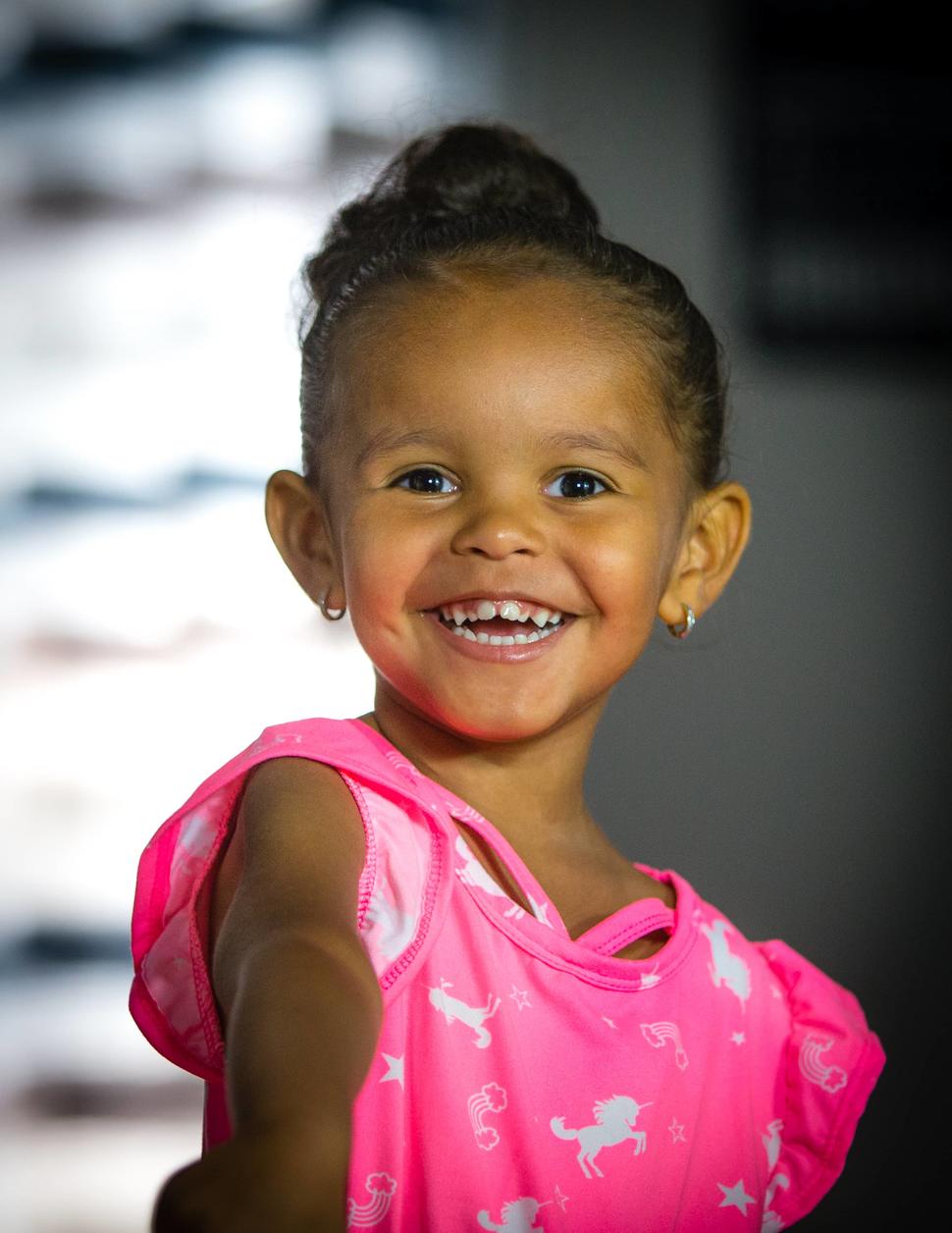When Rihanna was born, her parents and doctors were alarmed to see a large mass on her upper right arm. A routine prenatal ultrasound only 10 days earlier had shown nothing out of the ordinary. Rihanna was diagnosed with a rare cancer known as infantile fibrosarcoma. The medical teams responded quickly by putting her on a course of intensive chemotherapy. After 4 months of treatment, her tumor had not shrunk.
At 5 months of age, baby Rihanna was facing possible amputation of her arm when she was referred to Memorial Sloan Kettering Cancer Center. She was enrolled in an NCI-funded clinical trial of larotrectinib (Vitrakvi), a drug that targets TRK fusions, a mutation characteristic of her tumor. NCI scientists first identified TRK fusions, which, although rare, are expressed in multiple types of cancer in children and adults.
Rihanna’s mother, Ana, recalls, “She started the drug on a Monday, and, by Wednesday, I already saw the tumor shrinking like a raisin. She had no side effects.” Larotrectinib therapy allowed the surgeons to remove the mass without compromising function of her arm. Rihanna underwent 2 years of treatment, and now at 2.5 years old, she remains cancer free and no longer needs the drug. Her parents are thrilled to see their little girl light up the room with her charismatic personality.
Thanks to NCI-funded research, Rihanna is a happy and healthy toddler. Discussing the now Food and Drug Administration-approved drug, Ana reflected, “I’m excited that Rihanna’s experience with larotrectinib has helped give other people the opportunity for a full and healthy life, too.”
This story was originally published in the NCI Fiscal Year 2021 Annual Plan & Budget Proposal. Read the most recent Annual Plan & Budget Proposal at plan.cancer.gov.
